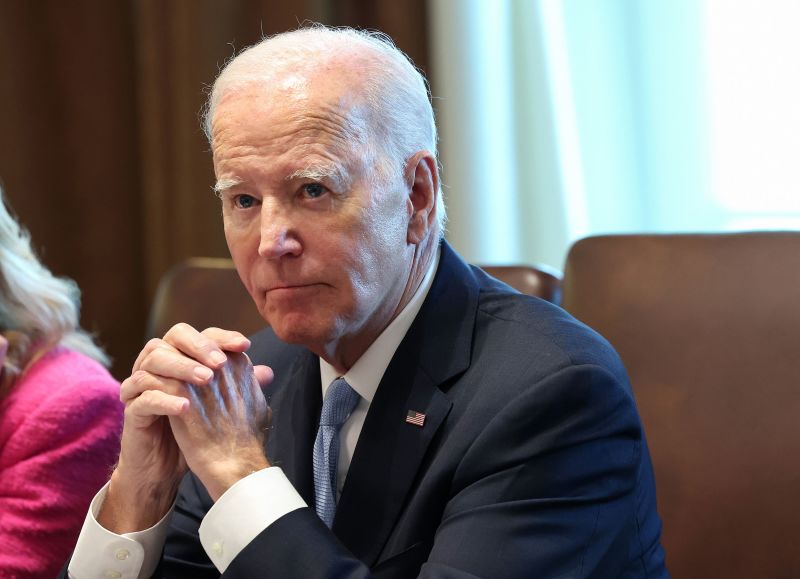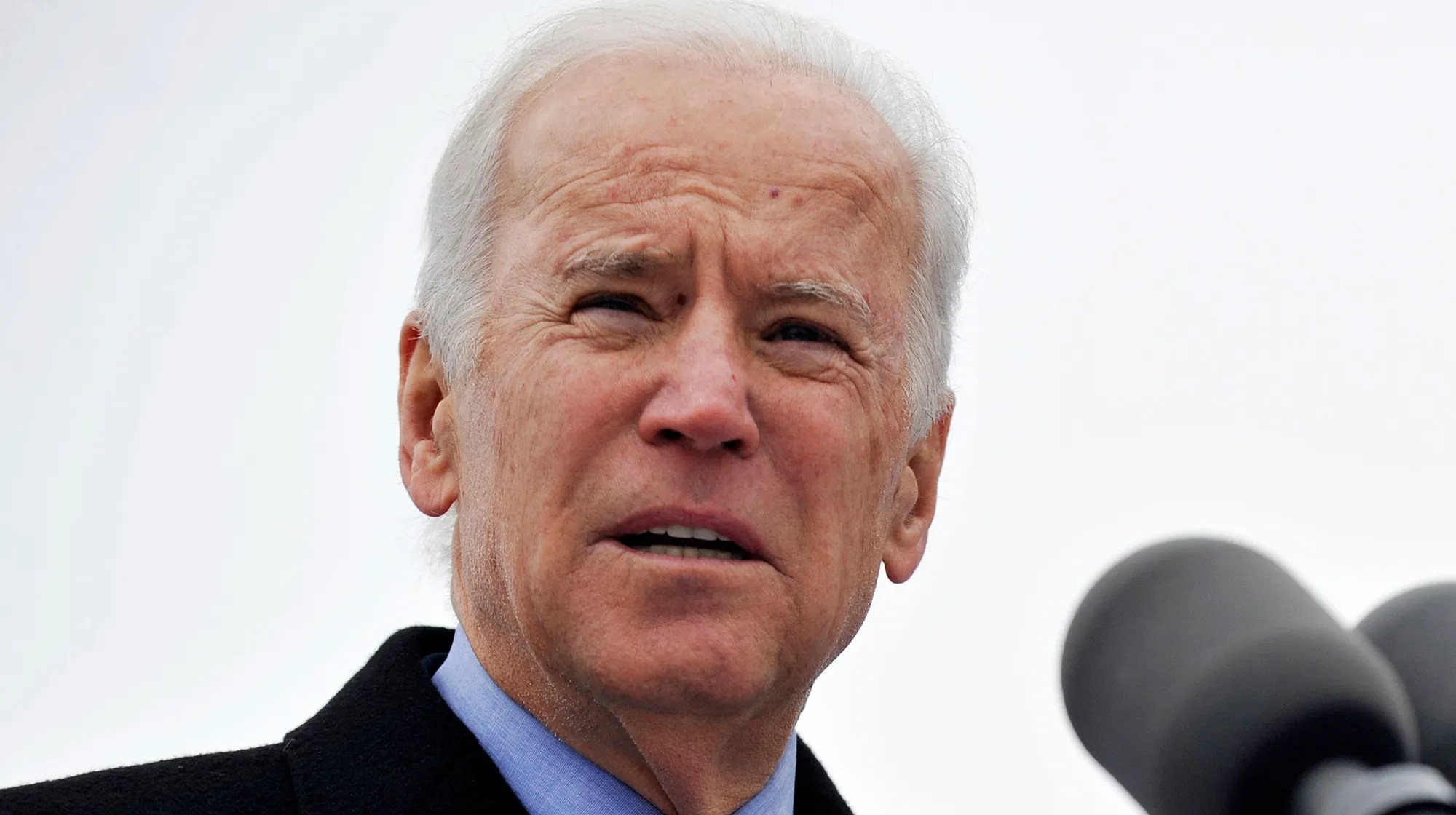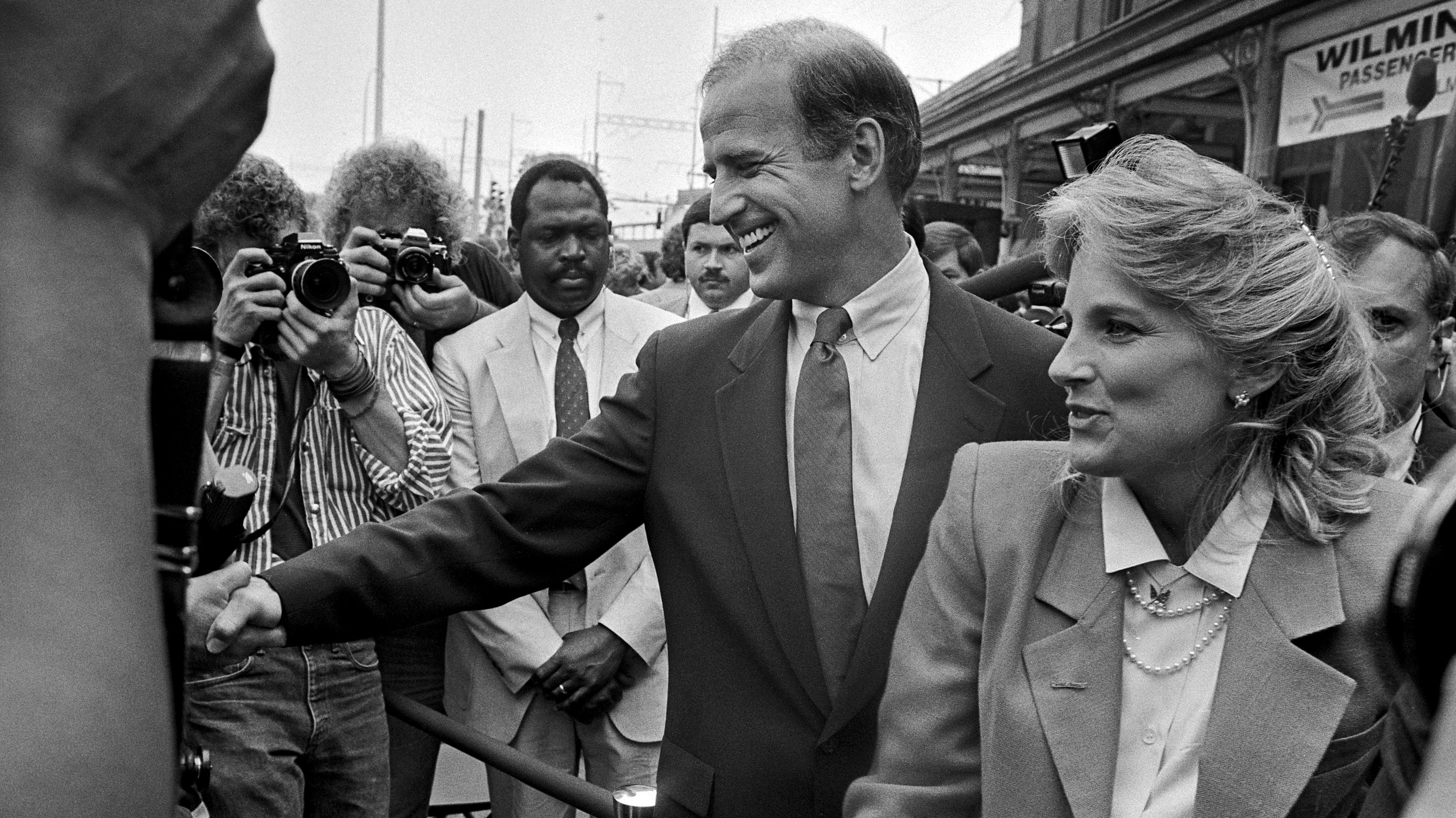Who was Biden in 2000?
Joe Biden was a Democratic senator from Delaware in 2000. He was the chairman of the Senate Judiciary Committee and a leading voice on criminal justice and drug policy reform.
Biden was a strong supporter of gun control and abortion rights. He also opposed the death penalty.
In 2000, Biden was considered a potential candidate for the Democratic presidential nomination. However, he ultimately decided not to run.
biden in 2000
In 2000, Biden was a leading voice on criminal justice reform. He was the author of the Violent Crime Control and Law Enforcement Act of 1994, which increased funding for law enforcement and prisons.
Biden also played a key role in the passage of the Brady Handgun Violence Prevention Act, which requires background checks for gun purchases.
Biden's work on criminal justice reform has been praised by both Democrats and Republicans. He is widely seen as one of the most effective lawmakers on the issue.
{point}
Biden has been a leading voice on criminal justice reform for decades. He has authored and supported legislation to reduce mass incarceration, provide more funding for rehabilitation programs, and reform the death penalty.
Biden's work on criminal justice reform has been praised by both Democrats and Republicans. He is widely seen as one of the most effective lawmakers on the issue.
{point}
Biden has been a strong supporter of gun control throughout his career. He has authored and supported legislation to ban assault weapons, close the gun show loophole, and require background checks for all gun purchases.
Biden's support for gun control is based on his belief that it is necessary to reduce gun violence. He has said that he will continue to fight for common-sense gun safety measures.
{point}
Biden has been a vocal opponent of the death penalty for decades. He has said that he believes it is cruel and unusual punishment and that it does not deter crime.
Biden has also said that the death penalty is applied in a racially biased manner. He has called for a moratorium on executions and for the abolition of the death penalty.
biden in 2000
In 2000, Joe Biden was a Democratic senator from Delaware. He was a leading voice on criminal justice reform, gun control, and abortion rights. He was also opposed to the death penalty.
- Criminal Justice Reform Advocate
- Gun Control Supporter
- Abortion Rights Defender
- Death Penalty Opponent
- Committee Chairman
- Potential Presidential Candidate
Biden's work on criminal justice reform and gun control has been praised by both Democrats and Republicans. He is widely seen as one of the most effective lawmakers on these issues.
Criminal Justice Reform Advocate
As a leading criminal justice reform advocate in 2000, Joe Biden played a pivotal role in shaping policies and legislation aimed at addressing systemic issues within the criminal justice system. His efforts focused on reducing mass incarceration, promoting rehabilitation, and reforming the death penalty.
- Reducing Mass Incarceration
Biden supported policies that aimed to reduce the number of individuals incarcerated, particularly for nonviolent offenses. He advocated for alternatives to incarceration, such as diversion programs, community service, and drug treatment courts, to address the root causes of crime and reduce recidivism.
- Promoting Rehabilitation
Biden emphasized the importance of providing opportunities for rehabilitation and reintegration for individuals who had been incarcerated. He supported funding for educational programs, job training, and mental health services within correctional facilities to help individuals successfully transition back into society.
- Reforming the Death Penalty
Biden has consistently opposed the death penalty, citing concerns about its irreversible nature, the risk of wrongful convictions, and the disproportionate impact on minority communities. He has advocated for the abolition of the death penalty and for alternative sentencing options that provide closure to victims' families while upholding the principles of justice and fairness.
Biden's advocacy for criminal justice reform was grounded in his belief that the system should prioritize rehabilitation over punishment, address racial disparities, and provide opportunities for redemption and second chances. His efforts in this area have had a significant impact on shaping criminal justice policies and continue to influence ongoing debates on reform.
Gun Control Supporter
Joe Biden's support for gun control measures has been a defining aspect of his political career, including during his time as a senator in 2000. His advocacy for gun control stems from his belief in the need to reduce gun violence and protect public safety.
As a senator, Biden played a key role in the passage of the Brady Handgun Violence Prevention Act in 1993, which established a national background check system for handgun purchases. He also supported the Assault Weapons Ban of 1994, which prohibited the manufacture and sale of certain semi-automatic weapons and high-capacity magazines.
Biden's support for gun control is based on his belief that these measures are necessary to reduce gun violence and save lives. He has argued that background checks help to keep guns out of the hands of dangerous individuals, such as felons and domestic abusers.
Biden has also highlighted the disproportionate impact of gun violence on communities of color. He has called for increased investment in community-based violence prevention programs and for policies that address the root causes of gun violence, such as poverty and lack of opportunity.
Biden's support for gun control has been a consistent theme throughout his career. As a senator, vice president, and now as president, he has continued to advocate for measures that he believes will reduce gun violence and protect public safety.
Abortion Rights Defender
As a senator in 2000, Joe Biden was a vocal defender of abortion rights. He believed that women should have the right to make decisions about their own bodies, including whether or not to have an abortion.
- Codifying Roe v. Wade
Biden supported legislation that would have codified the Supreme Court's Roe v. Wade decision, which legalized abortion nationwide. He argued that this was necessary to protect women's access to safe and legal abortion.
- Protecting Abortion Providers
Biden also supported legislation that would have protected abortion providers from violence and intimidation. He argued that these providers were providing essential medical care and should be able to do so without fear of harassment or violence.
- Opposing Parental Notification Laws
Biden opposed parental notification laws, which require minors to obtain parental consent before obtaining an abortion. He argued that these laws were unconstitutional and that they placed an undue burden on young women seeking abortions.
- Expanding Access to Abortion Care
Biden supported policies that would have expanded access to abortion care, such as funding for Planned Parenthood and other reproductive health clinics. He argued that all women should have access to affordable and quality abortion care, regardless of their income or location.
Biden's support for abortion rights has been a consistent theme throughout his career. As a senator, vice president, and now as president, he has continued to advocate for policies that protect and expand women's access to abortion care.
Death Penalty Opponent
Joe Biden's opposition to the death penalty has been a defining aspect of his political career, including during his time as a senator in 2000. His stance on this issue is rooted in his belief in the sanctity of life and the fallibility of the criminal justice system.
Biden has consistently argued that the death penalty is cruel and unusual punishment, and that it does not deter crime. He has also expressed concern about the risk of wrongful convictions, particularly for individuals from marginalized communities.
In 2000, Biden co-sponsored the Innocence Protection Act, which established a federal grant program to assist states in implementing reforms to prevent wrongful convictions. He also supported legislation that would have limited the use of the death penalty to cases involving aggravated murder.
Biden's opposition to the death penalty has been a consistent theme throughout his career. As a senator, vice president, and now as president, he has continued to advocate for the abolition of the death penalty and for alternative sentencing options that provide closure to victims' families while upholding the principles of justice and fairness.
Committee Chairman
As a senator in 2000, Joe Biden served as the Chairman of the Senate Judiciary Committee. This influential position gave him significant authority and responsibility in shaping legislation and overseeing the judicial branch of government.
- Oversight of Judicial Nominations
As Chairman, Biden played a key role in vetting and approving judicial nominees put forward by President Bill Clinton. He held extensive hearings, examined nominees' qualifications and backgrounds, and made recommendations to the full Senate for confirmation. Biden's approach to judicial nominations was generally considered to be fair and thorough, and he worked to ensure that the federal judiciary reflected the diversity of the American people.
- Leadership on Crime Legislation
Under Biden's leadership, the Senate Judiciary Committee played a central role in crafting and passing significant crime legislation. Biden was instrumental in the passage of the Violent Crime Control and Law Enforcement Act of 1994, which expanded federal funding for law enforcement and prisons. He also played a key role in the passage of the Brady Handgun Violence Prevention Act, which established a national background check system for handgun purchases. Biden's work on crime legislation was instrumental in reducing crime rates and making communities safer.
- Investigation of Presidential Misconduct
In 1998, the Senate Judiciary Committee, under Biden's chairmanship, conducted an impeachment inquiry into allegations of misconduct by President Bill Clinton. Biden played a central role in the investigation, presiding over hearings and examining evidence. The committee ultimately voted to approve articles of impeachment against Clinton, but the full Senate acquitted him on both charges.
- Platform for Political Debate
As Chairman of the Senate Judiciary Committee, Biden used his position to hold hearings and debates on a wide range of issues, including crime, civil rights, and judicial reform. These hearings provided a platform for public discourse and allowed Biden to engage with experts, advocates, and policymakers on critical issues facing the nation.
Biden's tenure as Chairman of the Senate Judiciary Committee was marked by his commitment to fair and impartial oversight, his leadership on key legislative initiatives, and his ability to facilitate important public debates. He played a significant role in shaping the American justice system and addressing critical issues facing the nation.
Potential Presidential Candidate
In the year 2000, Joe Biden was widely regarded as a potential presidential candidate within the Democratic Party. This prospect was influenced by several key factors that highlighted his political stature and qualifications for the nation's highest office.
- Political Experience and Accomplishments:
Biden had established a long and distinguished career in politics, serving as a senator from Delaware since 1973. During his tenure, he had gained recognition for his leadership on various issues, including criminal justice reform, gun control, and foreign policy. His experience and accomplishments in the Senate positioned him as a credible contender for the presidency. - Electability and Appeal:
Biden was seen as a relatively moderate Democrat, which made him appealing to a broad range of voters. He was known for his ability to connect with people on a personal level and his reputation as a pragmatic and consensus-builder. These qualities suggested that he had the potential to win a general election and unite the country. - National Profile and Recognition:
As a prominent figure in the Democratic Party and the Chairman of the Senate Judiciary Committee, Biden had gained significant national exposure and recognition. His frequent appearances in the media and his involvement in high-profile issues helped to raise his profile and establish him as a potential presidential candidate. - Supporter Base and Fundraising:
Biden had cultivated a loyal base of supporters and had demonstrated strong fundraising capabilities. His ability to attract financial backing and mobilize volunteers was seen as an indication of his potential to run a competitive presidential campaign.
Ultimately, Biden decided not to pursue a presidential run in 2000. However, his status as a potential candidate reflected his political stature and the recognition of his qualifications for the presidency. The factors discussed above underscore the reasons why Biden was considered a viable contender for the Democratic nomination and highlight his potential as a future presidential candidate.
FAQs about "biden in 2000"
This section provides answers to commonly asked questions about Joe Biden's positions and activities in the year 2000.
Question 1: What were Joe Biden's key policy priorities as a senator in 2000?
Answer: As a senator in 2000, Biden focused on criminal justice reform, gun control, abortion rights, and opposition to the death penalty. He played a leading role in passing the Violent Crime Control and Law Enforcement Act, the Brady Handgun Violence Prevention Act, and the Innocence Protection Act.
Question 2: Why was Biden considered a potential presidential candidate in 2000?
Answer: Biden's political experience, electability, national profile, supporter base, and fundraising capabilities positioned him as a potential presidential candidate in 2000. However, he ultimately decided not to pursue a presidential run.
Summary: Biden's positions and activities in 2000 reflected his commitment to criminal justice reform, gun control, abortion rights, and the protection of civil liberties. His status as a potential presidential candidate highlighted his political stature and qualifications for the presidency.
Conclusion
Joe Biden's positions and activities in 2000 reflected his commitment to progressive values and his dedication to public service. As a senator, he played a leading role in shaping legislation on criminal justice reform, gun control, abortion rights, and the protection of civil liberties. His work on these issues helped to make a positive impact on the lives of many Americans.
Biden's status as a potential presidential candidate in 2000 highlighted his political stature and qualifications for the presidency. Although he ultimately decided not to pursue a presidential run, his experience and accomplishments in the Senate demonstrated his readiness to lead the nation.
Biden's legacy continues to shape American politics and policy. His commitment to bipartisanship, his focus on issues of justice and equality, and his ability to connect with people from all walks of life make him a respected and influential figure in American public life.
Article Recommendations



ncG1vNJzZmiclaK8b7HNnqmgoaOirrPAjaemaKqVobKiv8SsaGlnkp6xprqMoqVmamBlfW%2B006aj